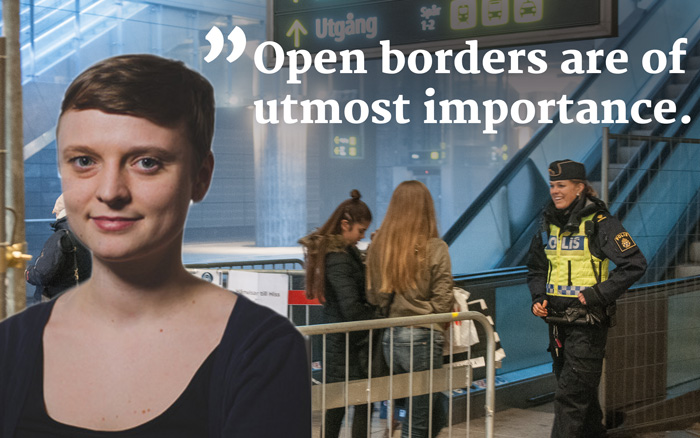The train ride to Copenhagen evolved in an unpredictable adventure. After coming across several annoyed voices, Eleonora Kleibel feels the urge to point out that the current developments do not only have an inconvenient but possibly also a worrying side to them.
When I was sixteen I planned to travel to Serbia with a group of friends. Our trip came to an early and abrupt end when I realised I had not brought my passport along.
Formally knowing I needed documentation to enter the country, my generation grew up with the normality of traveling Europe without checkpoints or border controls.
Almost a decade after my failed trip to the Balkans, passport controls are again a daily routine for many citizens within the European Union.
Border regions, that have been politically and financially incentivised to foster close cooperation, are suddenly being parted. The Öresund region is a showpiece of this evolution.
The European Union is based on the four main freedoms. Whilst the freedom of services, good and capital are focused on economics, the freedom of movement is what is mostly felt by the citizens of the European Union.
One cannot be naïve; freedom of movement is a privilege that came with the prize of simultaneously putting up higher fences around Europe. A Union, that truly stands to its core principles of democracy and solidarity has to act accordingly outside and within its border.
It has to take up its role in international politics and demonstrate openness to those in the need of help. In contrast, many decision-makers who are urging for national solutions to a global problem, started to lock themselves up and are going back to a pre-Schengen time.
Not only for the the citizens traveling across EU borders on a daily basis, for the students commuting from the Danish capital to the University of Lund but for the sake to uphold one of the major cornerstones of this Union, open borders are of utmost importance.
Worrying whether the journey to Copenhagen may take over an hour may come across as a relatively trivial sorrow in comparison to current events.
But it stands symbolic for what else it at stake: the Union, its integrity but probably even more relevant are the positioning in a global order and upholding openness for those coming need.
Will upcoming generation even run the risk of forgetting their passports when visiting friends in a neighbouring state? Let’s hope so.






